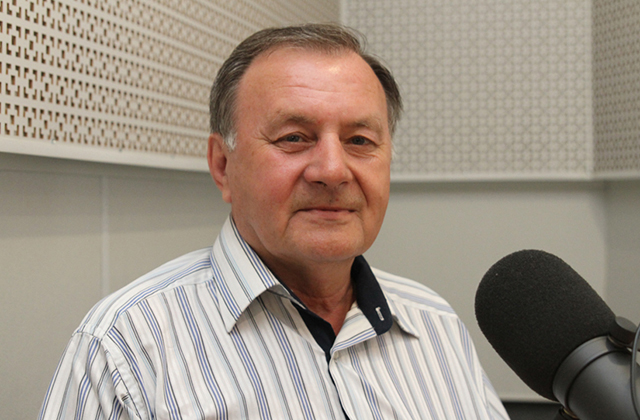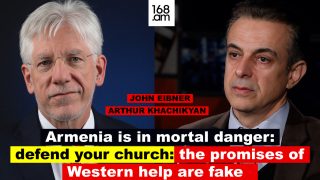Baku’s diplomatic language in NK issue is becoming more and more imprudent: Stanislav Tarasov

“Lavrov’s reply to the question of Azerbaijani reporter was clamorous,” Stanislav Tarasov, columnist at Regnum news agency, political scientist, told 168.am, reflecting to the sobering reply of Russian FM Sergey Lavrov to Azerbaijani reporter.
In reply to the question of Azerbaijani reporter, whether “Moscow will interfere with the internal affairs of Azerbaijan in case of Azerbaijan’s launching counter-terrorist operation and cleansing of criminal elements in the occupied territories,” Lavrov said NK conflict settlement is no longer something abstract and “it isn’t only the theme of Azerbaijan’s internal affairs.”
According to Lavrov, there is a whole set of decisions adopted by the Security Council and were addressed to suspension of ceasefire on the conflict zone. Lavrov stated that in many decisions by OSCE MG, as well as statements and documents, have been signed by presidents of Armenia and Azerbaijan as well, where necessity of Karabakh conflict peaceful settlement is stressed.
The FM reminded that after the conflict escalation in April 2016, on account of mutual accusations of Armenia and Azerbaijan, agreements have been reached on installation of investigative mechanisms and expansion of the office of the OSCE Chairperson-in-Office. “Unfortunately, even this elementary point—creation of mechanisms and increase of the number of observers can’t be brought into life, as there is no consensus yet within OSCE,” Lavrov said, adding that “one should ask representatives of that organization” about the reasons of lack of consensus.
Stanislav Tarasov qualified Lavrov’s reply as rather tough and sobering. The Russian analyst attached attention to the point that replying to the question of Azerbaijani reporter, Sergey Lavrov literally said the following, “This is no more anything abstract, it isn’t Azerbaijan’s internal affair only.”
Tarasov considers that such clear formulation around this legal issue was heard for the first time, which may be considered clamorous on account of the principles of international law.
He thinks this was a proper and accurate legal formulation, which was improperly criticized in Azerbaijani media outlets.
“I want to remind, that in 1960s claims for applying the right of nations to self-determination began to more and more frequently observed as international development. A protocol was approved in 1997, pursuant which armed conflicts, in which peoples fight against colonialism and foreign occupation are classified among conflicts, which are international.
Let me stress one noteworthy circumstance. After the April war Azerbaijan participated in preparation of agreements in Vienna and St. Petersburg, agreements, which are observed as installation of monitoring systems on the contact line and international observers. Of course, Baku didn’t sign those documents, which prevents application of these means, as international observation in Baku is perceived as interference with Baku’s internal affairs. However, doesn’t the fact that Baku is participating in OSCE MG works, mean, that the conflict is no more Azerbaijan’s internal affair? Thus, Sergey Lavrov’s reply was to the point from legal standpoint,” Stanislav Tarasov said.
To the question what Lavrov means, stating that there is no consensus in OCSE regarding installation of investigative mechanisms, Tarasov said for the time being it isn’t clear who blocks that process. “Maybe the very Baku was meant,” he said.
Touching upon the reply of Azerbaijani FM Elmar Mammadyarov ‘s reply to Lavrov, the Russian analyst reminded Mammadyarov’s statement that “Russia, as OSCE MG Co-Chair and a neighboring country, should exert more efforts for speedy settlement of the conflict.”
“Baku’s this logic and diplomatic language is unclear, as Russia functions in MG as a partner with the USA and France. It isn’t clear why Russia should exert more efforts. Baku’s diplomatic language regarding NK conflict with time is becoming more imprudent and strange, which doesn’t give hope that in near future a progress may be recorded in the conflict settlement,” Tarasov said. According to the latter, progress may be anticipated in case of tough pressures ad reflections, however, basically, they don’t have that right.
By Araks Martirosyan

























